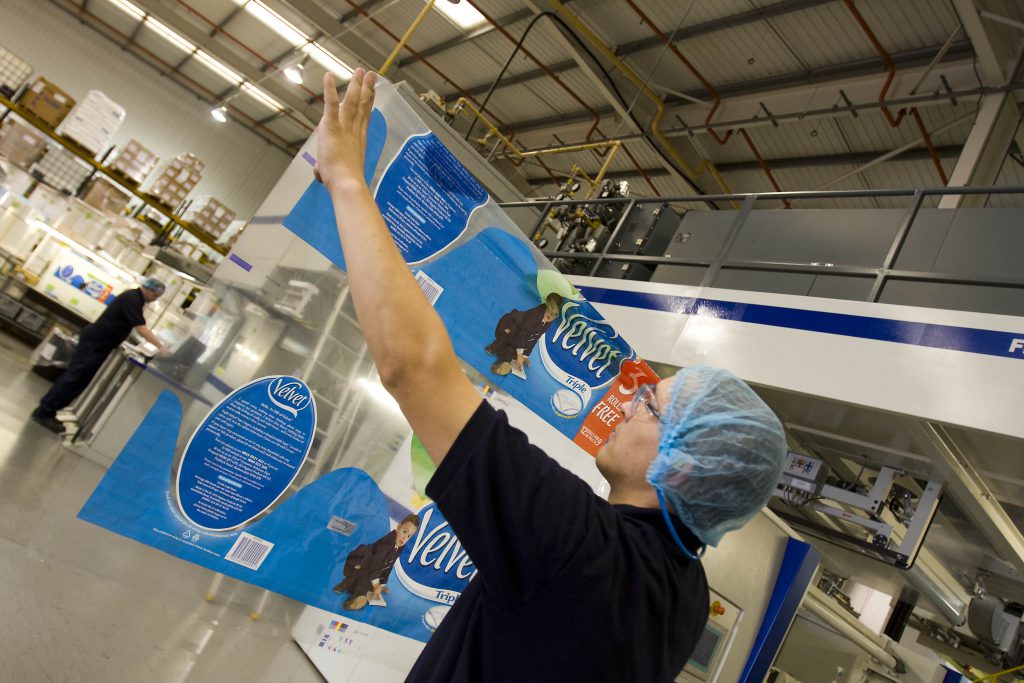Brexit Vote and Weak Pound Fuelling Reshoring Trend, Says Packaging Company
11th October 2017

Leading UK flexible packaging manufacturer Skymark claims British manufacturing is facing fresh buoyancy as a flurry of firms bring back work to the UK during Brexit negotiations.
Last year’s Brexit vote has fuelled the trend of UK companies trading from British shores, in what is known as ‘reshoring’. The move is being put down to a weak pound that in turn has increased the cost of imported materials and goods.
Paul Neath, Director of Skymark, said: “The fallout from Brexit – including a weak pound and potential disruption to supply chains – means that many UK companies are starting to think about reversing the offshoring trend and bringing manufacturing back to the UK. By moving production to the UK, it eliminates the need to pay rising costs required by overseas suppliers and we’re starting to see this move bring new business opportunities in the print and packaging industry.”
Brands like Cadbury are leading the reshoring movement as the world famous British brand is reinvesting in its historic factory in Bournville, moving manufacturing from Poland back to Birmingham. Another renowned company is supercar marker McLaren, which is ploughing £50 million into a hi-tech factory in Sheffield where its carbon chassis parts, which were once produced in Austria, will be made.
Skymark, the UK’s largest independent flexible packaging company, produces a wide range of flexible packaging solutions for the food, hygiene & personal care and medical packaging markets.
Established in 1987, Skymark has two UK manufacturing sites in Scunthorpe and Ilkeston and currently exports 35 per cent of its products to more than 20 countries. For 30 years, the company has delivered products and services to a wide variety of market sectors and today employs over 240 people in the UK.
Neath commented: “Working with local suppliers in the UK offers a level of flexibility, responsiveness and co-operation that is difficult to achieve when sourcing from overseas. I also believe reshoring the manufacturing base will improve supply chains and lead to greater productivity, which has recently been talked about as a UK wide problem in the media.”
A report by Ernst and Young in 2015 claimed bringing manufacturing back to the UK was a ‘once in a generation’ opportunity that could provide a £15 billion boost to the economy and create 315,000 jobs. However, reshoring itself presents businesses with a new range of challenges. Moving manufacturing back to Britain means a big investment for any print and packaging company in new lines, factories or plants with firms wary about their operations being interrupted during the process.
While reshoring could create more jobs, some businesses are concerned over a lack of skilled labour in the UK. However, this offers fresh opportunity for the industry to increase training opportunities that can help develop the next wave of workers.
Skymark believes it is an investment worth making. The reshoring of British companies could represent a significant opportunity for businesses looking to pick up new contracts while boosting productivity and improving the cost and quality of products and materials.
The real test for manufacturers is not the change that Brexit brings, but how they respond to the change, according to Neath: “I believe British companies should turn uncertainty into opportunity. While the details of Brexit are still unclear, Brexit gives the UK a host of new opportunities which could add significant value to business of all sizes.”

